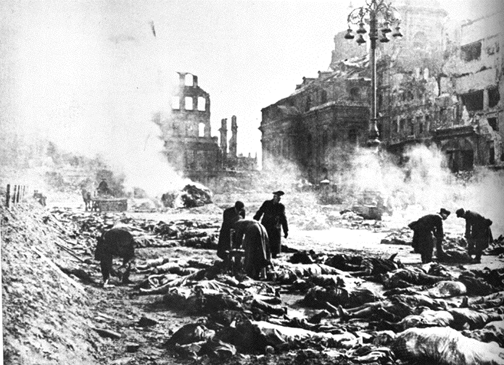Kurt Vonnegut, author of `Slaughterhouse-Five,’ dies
The defining moment of Vonnegut's life was the firebombing of Dresden, Germany, by Allied forces in 1945, an event he witnessed firsthand as a prisoner of war. Thousands of civilians were killed in the raids.
The firebombing of Dresden, he wrote, was "a tower of smoke and flame to commemorate the rage and heartbreak of so many who had had their lives warped or ruined by the indescribable greed and vanity and cruelty of Germany."
His experience in Dresden was the basis of "Slaughterhouse-Five," which was published in 1969 against the backdrop of war in Vietnam, racial unrest and cultural and social upheaval. The novel, wrote critic Jerome Klinkowitz, "so perfectly caught America's transformative mood that its story and structure became best-selling metaphors for the new age."
Slaughter House Five became the anti war novel of the Viet Nam era in America. Today the fire bombing of Dresden is still controversial in Canada as military chicken hawks attempt to white wash Britain's Bomber Harris because he used Canadian pilots to do the dirty work of bombing civilian targets in WWII.

Fire bombing tests were conducted on model cities built in the Nevada desert as Mike Davis writes in his book Dead Cities. The tests showed what we know today; fire bombing was not a military success but it certainly was successful as terrorism against a civilian population.A war of words over Canada's role in the bombing of German cities during the Second World War will move to Parliament Hill after a Senate committee on veterans' issues agreed to calls from the Royal Canadian Legion to host hearings on a contentious exhibit at the Canadian War Museum.
The display, which notes critics have questioned the "value and morality" of the Allied bombing campaign in Nazi Germany, has sparked outrage among some veterans and prompted the legion to urge a public boycott of the Ottawa museum until the disputed wording is changed or removed.
A single panel at the heart of the conflict describes the "enduring controversy" over the role of Canadian bombing squadrons in attacking Germany's industrial infrastructure and major cities as part of an Allied strategy to destroy the enemy's morale and cripple the Nazi war machine.
"Mass bomber raids against Germany resulted in vast destruction and heavy loss of life," the panel reads.
"The value and morality of the strategic bomber offensive against Germany remains bitterly contested. Bomber Command's aim was to crush civilian morale and force Germany to surrender by destroying its cities and industrial installations.
"Although Bomber Command and American attacks left 600,000 Germans dead, and more than five million homeless, the raids resulted in only small reductions in German war production until late in the war."
The museum has defended its exhibit, arguing the actions of Bomber Command have been debated for decades and that raising questions about the conduct of the 1939-1945 war is part of what historians should do.
Davis begins our apocalyptically inflected tour with a trip to New York’s Ground Zero. He then takes us to “German Village,” a Utah wasteland that was once a test site for Allied science advisors to rehearse the perfect plan for destroying Berlin,
As Niels Gutshow has shown, some hardcore Nazi ideologues actually welcomed the thousand-bomber raids and firestorms as a ritual cleansing of the "Jewish influence" of big city life and the beginning of a mystical regeneration of Aryan unity with nature. Thus, in the aftermath of the Hamburg, Cologne, and Kassel holocausts in 1943, the "eco-fascist" Max Karl Schwarz, who shared Ruskin's and Jefferies's aversion to the "toxicity" of big cities, proposed to "revitalize the landscape" by leveling the debris and planting trees. The old, dense cities would not be rebuilt; indeed, "only after the destroyed areas are animated through forest will they become a true urban landscape, that is, with houses and gardens." Authentically German garden cities would replace the decadent "Jewish" metropolis. After all, had not Zarathustra commanded his followers to "spit on this city of shopkeepers"?
The British Air Command also planned a final solution for Germany had D-Day not been successful, they were going to drop anthrax on Germany.
See:
RIP
Obituary
Find blog posts, photos, events and more off-site about:
, authors, writers, fire bombing, WWII, RIP, Vonnegut, Kurt Vonnegut Jur.,
Bomber Harris, anti-war novel, science fiction, Dresden, Slaughter House Five,
